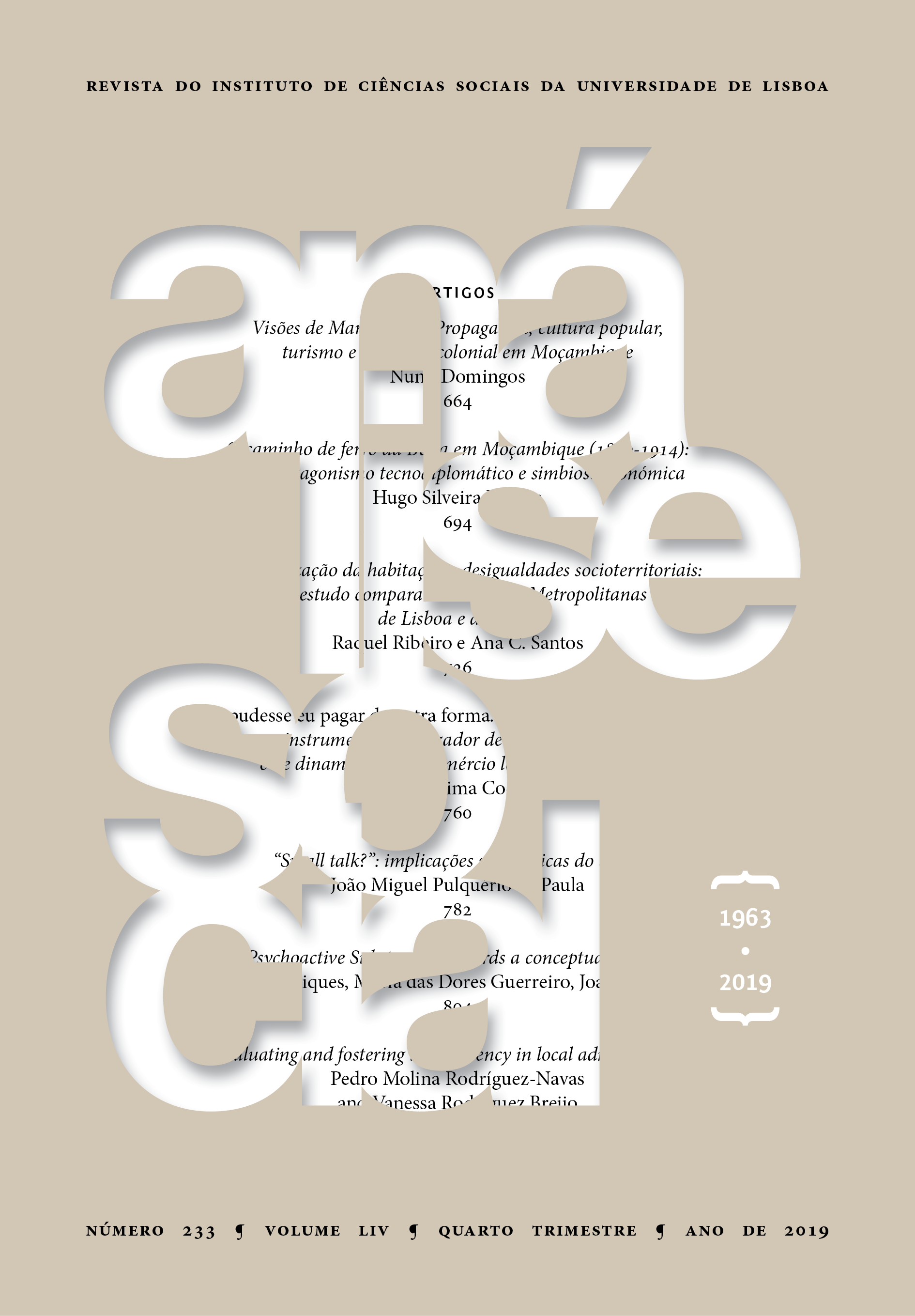The Beira railway in Mozambique (1890-1914): between technodiplomatic antagonism and economic symbiosis
DOI:
https://doi.org/10.31447/AS00032573.2019233.02Keywords:
railway imperialism, scramble for Africa, chartered companies, narrow gaugeAbstract
Because of a treaty signed between Portugal and England, in 1892 a British Company controlled by Cecil Rhodes’ BSAC began the construction of a railway between the Mozambican harbor of Beira and the Rhodesian frontier. Despite the fears of denationalization of the Portuguese territories, construction and operation were conducted almost without any inspection from Portuguese authorities. The line cost Portugal nothing and its cross-border operation became rather efficient. In this paper, I aim to explain this historical process, using the concepts of large transnational technological systems, cross-borders, landlocked countries, and technodiplomacy.
Downloads
Download data is not yet available.
Downloads
Published
2019-12-31
How to Cite
Silveira Pereira, H. (2019). The Beira railway in Mozambique (1890-1914): between technodiplomatic antagonism and economic symbiosis. Análise Social, 54(233), 694–724. https://doi.org/10.31447/AS00032573.2019233.02
Issue
Section
Research Article



